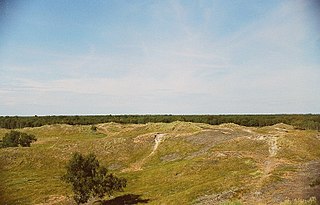
Læsø is the largest island in the North Sea bay of Kattegat, and is located 19 kilometres (12 mi) off the northeast coast of the Jutland Peninsula, the Danish mainland. Læsø is also the name of the municipality on that island. The island is a location mentioned in several instances in Old Norse sources detailing Norse mythology.

Cruelty to animals, also called animal abuse, animal neglect or animal cruelty, is the infliction by omission (neglect) or by commission by humans of suffering or harm upon non-human animals. More narrowly, it can be the causing of harm or suffering for specific achievements, such as killing animals for entertainment; cruelty to animals sometimes encompasses inflicting harm or suffering as an end in itself, referred to as zoosadism.
The history of zoophilia and bestiality begins in the prehistoric era, where depictions of humans and animals in a sexual context appear infrequently in European rock art. Bestiality remained a theme in mythology and folklore through the classical period and into the Middle Ages and several ancient authors purported to document it as a regular, accepted practice—albeit usually in "other" cultures.
Freedom of speech and freedom of the press in Denmark are ensured by § 77 of the constitution:
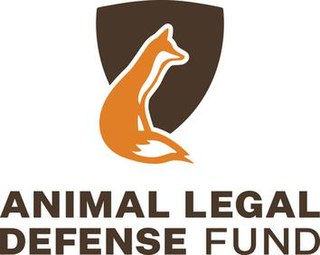
The Animal Legal Defense Fund is an animal law advocacy organization. Its stated mission is to protect the lives and advance the interests of animals through the legal system. It accomplishes this by filing high-impact lawsuits to protect animals from harm, providing free legal assistance and training to prosecutors to assure that animal abusers are punished for their crimes, supporting tough animal protection legislation and fighting legislation harmful to animals, and providing resources and opportunities to law students and professionals to advance the emerging field of animal law. In addition to their national headquarters in Cotati, California, the Animal Legal Defense Fund maintains an office in Portland, Oregon.
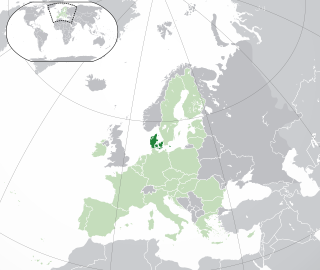
Lesbian, gay, bisexual, and transgender (LGBT) rights in the Kingdom of Denmark rank among the highest in the world. The Kingdom consists of the Realm of Denmark, a sovereign state comprising three constituent countries: Denmark, Greenland and the Faroe Islands.
RSPCA Australia is an Australian peak organisation established in 1981 to promote animal welfare. Each state and territory of Australia has an RSPCA organisation that predates and is affiliated with RSPCA Australia.
Women have played a central role in animal advocacy since the 19th century. The animal advocacy movement – embracing animal rights, animal welfare, and anti-vivisectionism – has been disproportionately initiated and led by women, particularly in the United Kingdom. Women are more likely to support animal rights than men. A 1996 study of adolescents by Linda Pifer suggested that factors that may partially explain this discrepancy include attitudes towards feminism and science, scientific literacy, and the presence of a greater emphasis on "nurturance or compassion" amongst women. Although vegetarianism does not necessarily imply animal advocacy, a 1992 market research study conducted by the Yankelovich research organization concluded that "of the 12.4 million people [in the US] who call themselves vegetarian, 68% are female, while only 32% are male".

Danish nationality law is governed by the Constitutional Act of the Realm of Denmark and the Consolidated Act of Danish Nationality . Danish nationality can be acquired in one of the following ways:
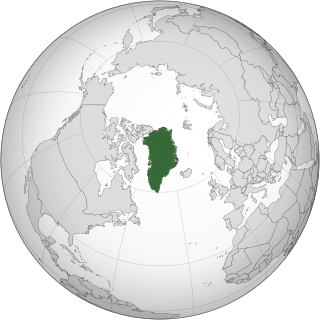
Lesbian, gay, bisexual, and transgender (LGBT) rights in Greenland are some of the most extensive in the Americas and the world, relatively similar to those in Denmark proper in Europe. Same-sex sexual activity is legal, with an equal age of consent, and there are some anti-discrimination laws protecting LGBT people. Same-sex couples had access to registered partnerships, which provided them with nearly all of the rights provided to married opposite-sex couples, from 1996 to 2016. On 1 April 2016, a law repealing the registered partnership act and allowing for same-sex marriages to be performed came into effect.
Privacy law in Denmark is supervised and enforced by the independent agency Datatilsynet based mainly upon the Act on Processing of Personal Data.
Animal welfare in Egypt is a neglected issue. There are only a few organizations that support the rights and wellbeing of animals.
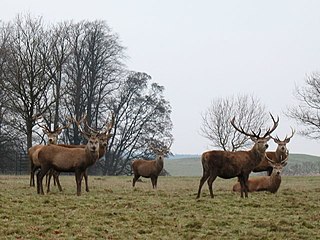
Animal welfare in the United Kingdom relates to the treatment of animals in fields such as agriculture, hunting, medical testing and the domestic ownership of animals. It is distinct from animal conservation.
Animal welfare and rights in Malaysia is about the laws concerning and treatment of non-human animals in Malaysia. Malaysia has had a national animal welfare law since 1953, though it was criticized for being weak and under-enforced. In 2015, Malaysia passed an updated animal welfare law strengthening protections for animals and penalties for animal cruelty. Animal protection efforts in Malaysia appear to be exclusively welfare-driven rather than rights-driven.
Animal welfare and rights in South Africa is about the treatment of and laws concerning non-human animals in South Africa.

This article is about the treatment of and laws concerning non-human animals in Australia. Australia has moderate animal protections by international standards.

An Act to Prevent Cruelty to Farm Animals, more commonly known as Question 3, was the third initiative on the 2016 Massachusetts ballot. The measure requires Massachusetts farmers to give chickens, pigs, and calves enough room to turn around, stand up, lie down, and fully extend their limbs. It also prohibits the sale of eggs or meat from animals raised in conditions that did not meet these standards.
Animal welfare and rights in Denmark relates to the treatment of and laws concerning non-human animals in Denmark. Denmark has moderately strong protections for animals by international standards. In 2014 and again in 2020, Denmark received a B grade on the A–G scale of the World Animal Protection's Animal Protection Index.
Animal welfare and rights in the Netherlands is about the treatment of and laws concerning non-human animals in the Netherlands. The Netherlands has moderately strong animal protections by international standards.
Animal rights vary greatly among countries and territories. Such laws range from the legal recognition of non-human animal sentience to the absolute lack of any anti-cruelty laws, with no regard for animal welfare.








